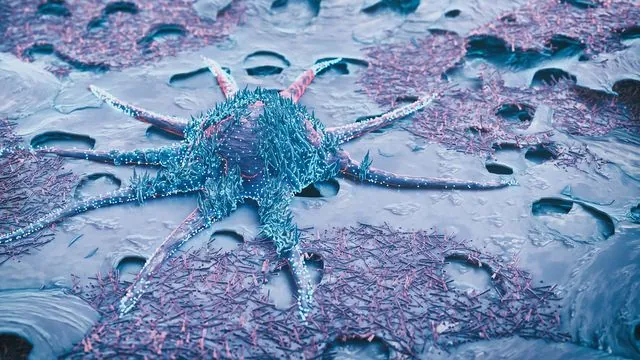
Groundbreaking Discovery Unveils Why Ewing Sarcoma Becomes More Lethal!
2024-12-02
Author: Emma
Groundbreaking Discovery Unveils Why Ewing Sarcoma Becomes More Lethal!
In a remarkable scientific breakthrough, researchers have uncovered critical mechanisms that contribute to the aggressive nature of Ewing Sarcoma, a rare and often deadly form of cancer. At the heart of this discovery lies a key protein known as STAG2, which is a vital component of the cohesin protein complex.
The Role of STAG2 in Cellular Function
Cohesin, identified in vertebrates by researcher Losada in the late 1990s, plays an essential role in crucial cellular processes such as cell division and gene expression. When cells divide, they replicate their chromosomes, arranging them in an X formation. It is the cohesin protein that binds these chromosomes together at their centromeres, ensuring that each daughter cell receives a complete set of DNA.
When the cell is not dividing, cohesin facilitates the proper folding of DNA, allowing for accurate gene expression. This is fundamental because, despite sharing the same genetic blueprint, different cell types develop unique characteristics—such as skin, muscle, or eye cells—by expressing different genes based on their specific functions.
The Consequences of STAG2 Loss
A recent study published in EMBO Reports reveals alarming consequences when STAG2 is absent. Researchers found that the improper folding of DNA leads to significant errors in gene expression. “The cohesin that carries STAG2 facilitates bonds along the DNA that enable communication with elements controlling gene expression,” notes Losada. “Without it, gene regulation becomes chaotic, allowing cells to survive but with numerous aberrations that can make them more aggressive.”
Implications for Cancer Treatment and Immunotherapy
The study emphasizes the importance of understanding how the absence of STAG2 affects not only gene expression but also the overall stability of the genome. This multifaceted failure could explain why tumors driven by this mutation display such a poor prognosis. “Our goal now is to dissect these diverse mechanisms to potentially provide novel treatment options for patients with cohesin mutations,” the researchers assert.
Particularly intriguing is the potential influence of STAG2 loss on immune response. Investigating the differences in immune reactions between patients with and without STAG2 mutations could yield invaluable insights into why some tumors avoid detection by the immune system. Such insights may be pivotal for refining immunotherapy strategies aimed at combating Ewing Sarcoma.
A Call to Action
This groundbreaking research not only deepens our understanding of Ewing Sarcoma but also sets the stage for innovative treatment avenues. Experts urge further investigations into the role of STAG2 and related pathways to develop targeted therapies that could improve outcomes for patients grappling with this aggressive cancer. The scientific community is on the edge of its seat, waiting to see how these revelations might change the landscape of cancer treatment for Ewing Sarcoma patients in the near future!
For those passionate about cancer research and hoping for advancements in treatment options, stay informed—this is just the beginning of a long journey toward understanding and conquering Ewing Sarcoma.









 Brasil (PT)
Brasil (PT)
 Canada (EN)
Canada (EN)
 Chile (ES)
Chile (ES)
 España (ES)
España (ES)
 France (FR)
France (FR)
 Hong Kong (EN)
Hong Kong (EN)
 Italia (IT)
Italia (IT)
 日本 (JA)
日本 (JA)
 Magyarország (HU)
Magyarország (HU)
 Norge (NO)
Norge (NO)
 Polska (PL)
Polska (PL)
 Schweiz (DE)
Schweiz (DE)
 Singapore (EN)
Singapore (EN)
 Sverige (SV)
Sverige (SV)
 Suomi (FI)
Suomi (FI)
 Türkiye (TR)
Türkiye (TR)